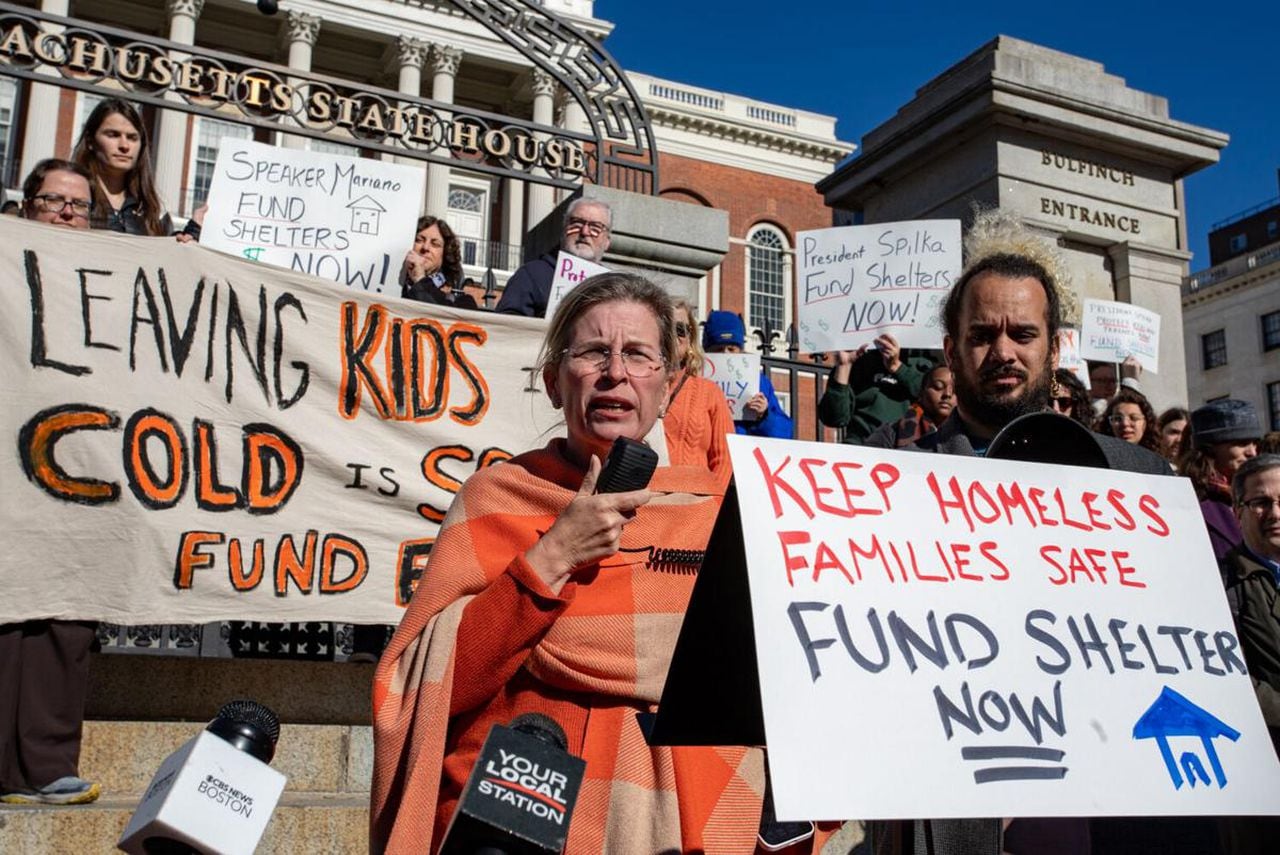
Migrant and homeless families in Massachusetts seeking emergency shelter will be placed on a waitlist starting Friday after the state hit its capacity limit on Thursday.
As of Thursday afternoon, there were 7,517 families enrolled in the system, which includes hotels and motels, only slightly past the 7,500 limit that Gov. Maura Healey’s administration warned for weeks would push it to the limit.
“We are at the point where we do not have enough shelter units, service providers, or funding to continue to safely expand,” Emergency Assistant Director Gen. Scott Rice said in a statement Thursday. He was recently appointed by Healey to tackle the crisis.
- Read more: Mass. House OKs $2.7B spending bill that requires launching overflow shelter site in 30 days
If no shelters are available, families eligible for emergency assistance will be placed on a waitlist, Rice said. It’s a first for Massachusetts as the state’s “right-to-shelter” law, unique among other states, comes under strain due to an influx of new arrivals in the state and a lack of affordable housing.
“Our administration continues to provide arriving families with resources, basic necessities and support, and we are working with community partners to connect them with safe, overnight options,” Rice said.
State lawmakers are attempting to divert funds towards the shelter system in an attempt to eliminate waitlists and provide overflow sites for unhoused families.
The state’s House of Representatives green-lit a $2.47 billion spending bill Wednesday that would divert $250 million in funding toward the state’s shelter system. The bill, if signed into law, requires that $50 million be used toward an overflow site for unhoused families placed on the state’s shelter waitlist.
The waitlists mean families seeking shelter will be faced with very few options as funding for overflow sites requires approval from the state Senate and Gov. Maura Healey’s sign-off.
Kelly Turley, associate director for the Massachusetts Coalition for the Homeless, told the Boston Herald that families are likely to stay in places like Logan Airport or other places not traditionally considered shelters.
“Historically, families may have gone to the hospital emergency rooms, and they’re not necessarily prepared to become de facto shelters,” Turley told the outlet.
Boston Medical Center ended a policy in July that allowed migrant and homeless families to shelter overnight at the hospital.
“Many families are staying, double or tripled up with families,” Turley said during an interview with WBUR’s “Radio Boston” program last week. “They’re staying in cars, or campgrounds, or hospital emergency rooms. Massachusetts has a very low rate of street homelessness, because we’ve had that right-to-shelter [law]. We’re very scared for families and where they’ll go. There are newly arrived immigrant families who don’t have [family] connections.”
Turley told WBUR that her organization hopes the state Legislature will “respond positively to the supplemental budget request,” that Healey has filed to keep the shelter system funded.
But, she noted, with time running out before the Legislature ends its formal voting sessions for the year.
If lawmakers fail to act before sessions end on Nov. 15, the issue should be “on the top of their list” when they return to session in January, she said.
After Thursday, families arriving at emergency assistance offices will be screened for eligibility and safety concerns that may necessitate priority for placement, according to a statement from the state’s Executive Office of Housing and Livable Communities.
The Family Welcome Centers in Allston and Quincy will continue to offer services such as hot meals and basic necessities like diapers, warm clothes, and hygiene kits.
The Healey administration also raised HomeBASE benefits, which provide rental assistance and related support, from $20,000 over 24 months to $45,000 over three years as a way to assist families exiting the shelter system.
State officials are partnering with the U.S. Department of Homeland Security to host a work authorization clinic during the weeks of Nov. 13 and Nov. 27 to help process work authorizations for shelter residents.





